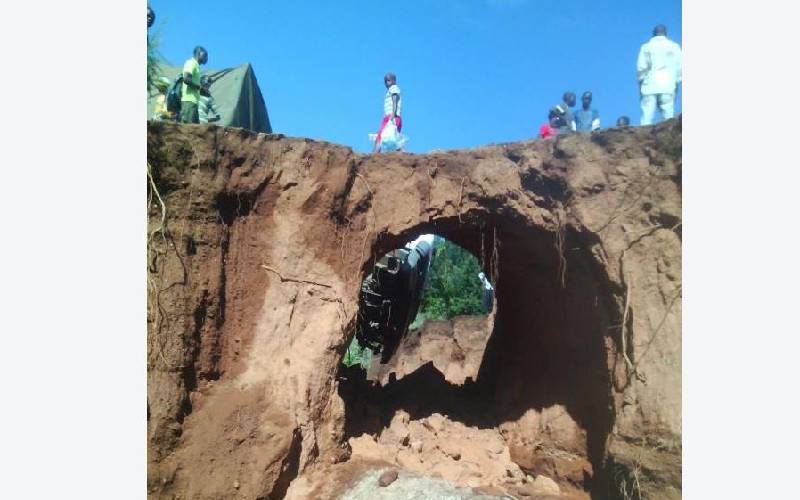×
The Standard e-Paper
Fearless, Trusted News

A section of Kapenguria-Kainuk road in West Pokot County after it was washed away by heavy rains in 2018.[Standard]
Residents of Kipchumwa and Endo locations in Elgeyo Marakwet will never forget April 18, 2020 when a massive landslide killed dozens of people and buried others alive never to be found to date.







